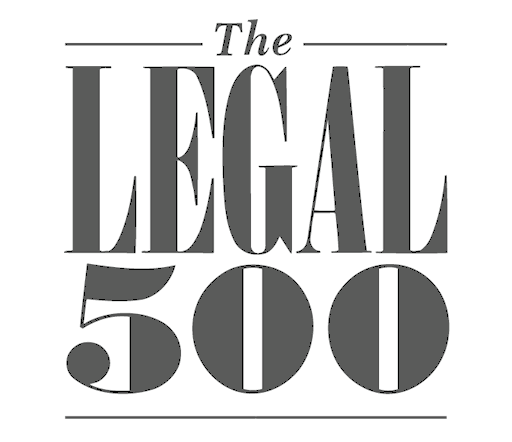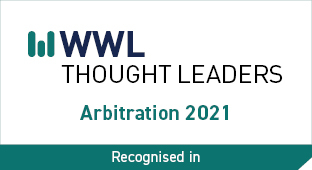Publications
The Right to Be Heard – a Constitutional Guarantee of No Formal Nature
Commentary by Axel Buhr on Swiss Federal Tribunal decision 4A_424/2018 on January 29, 2019
The decision shows that a violation of the right to be heard will not result in the setting aside of an international arbitral award, unless the petitioner demonstrates that the violation is likely to have had an adverse impact on the outcome of the case. The Swiss Federal Tribunal’s classification of the right to be heard as a constitutional guarantee of «formal nature» can be misleading and should be abandoned.
I. Background
[1] On 16 February 2017, Sara Errani (in the decision and the following referred to as party «A»), an Italian tennis player, tested positive to the banned substance letrozole after competing in the 2017 Australian Open and Fed Cup.
[2] Following an investigation of the International Tennis Federation («ITF»), an Independent Tribunal («IT») with a decision dated 3 August 2017 suspended A for two months (starting from the date of the decision until 2 October 2017) and disqualified her results from the time between 16 February 2017 (the date of the first test) and 7 June 2017 (the date of a repeat test, which was negative), based on the rules of the ITF’s 2017 Tennis Anti-Doping Programme («TADP»).
[3] The decision of the IT was separately appealed by A and the Italian doping agency NADO (in the decision and the following referred to as party «B») to the Court of Arbitration for Sport («CAS») in Lausanne (Switzerland). Whereas A requested the CAS to annul, or in the alternative limit, the disqualification of her results, B asked the CAS to extend the suspension to two years.
[4] According to Article 10.10.3 of the TADP, the suspension period (or «period of ineligibility» in TADP parlance) shall start, as a general rule, at the date when the decision is issued. If an anti-doping rule violation («ADRV») is promptly admitted, Article 10.10.3.b of the TADP gives the arbitrators discretion to «backdate» the beginning of the suspension period to an earlier date, save that the suspension time before the date of the decision must not be longer than the time after it.
[5] Against this background, the CAS invited the parties in a hearing of the consolidated case, which was held on 9 November 2017, to comment, among other things, on the potential start date of any additional suspension period, assuming a hypothetical suspension period of more than two months. A maintained that any further suspension period should start at one of three dates: «the date of the doping control, 3 August 2017, being the date of the IT decision, or a date to be determined between 3 August 2017 and the date of the new sanction» (consid. B.a).
[6] In its decision dated 8 June 2018, the CAS suspended A for further ten months, starting from the date of the decision. With regard to a potential backdating of the additional suspension, the CAS found (consid. 5.3):
«[…] the Panel does not find it appropriate to exercise its discretion to backdate the commencement of the additional period of ineligibility. Art. 10.10.3 (b) TADP provides a reward for promptly admitting the ADVR [sic!]. The Panel, having compared the competing scenarios, is doubtful whether the backdating of the commencement of the further period of ineligibility is less harmful to the Athlete than not backdating. The Athlete who was not provisionally suspended and no longer ineligible to compete was free to compete as of 3 October 2017, and won prizes and advanced in the ranking which would have been disqualified for the period of backdating. Compared to those losses which are certain, it is uncertain how successful the Athlete may be in any future tournaments.»
[7] A, who had participated in competitions from 3 October 2017, requested the Swiss Federal Tribunal to set aside the CAS decision. According to A, her statement during the hearing of 9 November 2017 had been based on the impression that the CAS decision would be issued within one month of the hearing, whereas, in fact, the CAS decision was only issued seven months later (section 5.4.1). A argued that she had not received an opportunity to comment on a potential backdating from 8 June 2018 and that her right to be heard had been violated in this respect.
II. Decision
A. The Swiss Federal Tribunal Confirms that the Athlete’s Right to be Heard Had Been Violated in Connection with an Important Issue…
[8] The considerations of the Swiss Federal Tribunal start with a recap of its case law on the violation of the right to be heard in adversarial proceedings as a ground for setting aside of an international arbitral award (consid. 5.2). The right to be heard in adversarial proceedings does not require a reasoned award, but rather imposes a minimum duty on arbitral tribunals to analyze and deal with the relevant issues. This duty is violated if an arbitral tribunal inadvertently or due to a misunderstanding fails to consider allegations, arguments, evidence or offers of evidence which have been raised by a party and are important for the case. A party requesting the Swiss Federal Tribunal to set aside an award must show how an inadvertence of the arbitrators prevented the party from being heard on an important point.
[9] The Swiss Federal Tribunal recalls that not every manifest inadvertence constitutes a violation of the right to be heard. A false or even arbitrary finding is not in itself sufficient to set aside an international arbitral award. Rather, the Swiss Federal Tribunal intervenes only if a party succeeds in establishing that the inadvertence of the arbitral tribunal prevented it from presenting its arguments and the necessary evidence on a question relevant to the outcome of the case.
[10] Based on these considerations and referring to the section in the CAS decision reproduced above, the Swiss Federal Tribunal finds that A in fact received an opportunity to comment on the backdating issue at the hearing of 9 November 2017, but that A apparently failed to take a clear stance (consid. 5.6).
[11] According to the Swiss Federal Tribunal, it is evident from the CAS decision that the CAS considered results which A obtained after 9 November 2017 and thus had not been specifically addressed at the hearing (consid. 5.7). Although A had received an opportunity to comment on the backdating issue in general, A was right, in the Swiss Federal Tribunal’s view, to point out that she could not have expected that the CAS would rule so late, seven months after the hearing of 9 November 2017 (consid. 5.7). The Swiss Federal Tribunal also acknowledges that A was able to comment at the hearing only on the effects of the backdating from the date of the hearing, but not on future effects of the backdating from the date of the CAS decision (consid. 5.7).
[12] The Federal Tribunal concludes that, by assessing A’s interests and the results she had obtained after the hearing of 9 November 2017 without first offering her an opportunity to comment on the effects of a backdating from the date of the CAS decision, the CAS had violated A’s right to be heard (consid. 5.7).
B. …But Nevertheless Dismisses the Athlete’s Request to Set Aside the CAS Decision
[13] Despite the Swiss Federal Tribunal’s finding that the CAS had violated A’s right to be heard, A’s request to set aside the CAS decision was unsuccessful.
[14] Referring to its more recent case law, the Swiss Federal Tribunal recalls that there is no need to set aside an award if it is unclear whether the violation has had an impact on the outcome of the proceedings. The pertinent case law is summarized by the Swiss Federal Tribunal in consid. 5.2.2 as follows (informal translation):
«5.2.2 Undoubtfully, the right to be heard is a constitutional guarantee of a formal nature. However, since it is not an end in itself, when it is not clear what influence its violation may have had on the procedure, there is no reason to set aside the challenged decision (BGE 143 IV 380, consid. 1.4.1 and the decisions cited). This case law also applies, mutatis mutandis, to international arbitration (decision 4A_247/2017 of 18 April 2018, consid. 5.1.3). Thus, in addition to the alleged violation, the party allegedly affected by the arbitrators’ inadvertence must demonstrate, on the basis of the grounds set out in the challenged award, that the facts, evidence or law which it had duly presented, but which the arbitral tribunal failed to take into consideration, were such as to influence the outcome of the dispute (BGE 142 III 360, consid. 4.1.3 and the decision cited).»
[15] Based on the cited case law, the Swiss Federal Tribunal finds that A failed to demonstrate that the violation of her right to be heard could have had any impact on the decision of the CAS (consid. 5.7). According to the Swiss Federal Tribunal, even if A had been again invited to comment on the start of the suspension period at the time before the CAS decision was issued, it would have been «impossible» for A to predict her future results and to compare them against her results of the time before the date of the CAS decision.
[16] Noting that the backdating of the suspension period was in any way subject to the discretion of the CAS pursuant to Article 10.10.3.b of the TADP, the Swiss Federal Tribunal dismisses A’s request to set aside the CAS decision (consid. 5.7).
III. Comments
[17] The decision shows that the Swiss Federal Tribunal’s classification of the right to be heard as a constitutional guarantee «of formal nature» is outdated, and little more than an empty phrase.
[18] Previously, the constitutional guarantee was considered formal in nature in that a violation of the right to be heard had to result in the setting aside of the challenged decision, no matter whether the violation adversely impacted the outcome of the case or not (see e.g. decision 4P.275/1992 of 7 April 1993, consid. 2, and Bernhard Berger/Franz Kellerhals, International and Domestic Arbitration in Switzerland, 3rd ed. Berne 2015, n. 1755).
[19] In its more recent case law, the Swiss Federal Tribunal had already toned down its strict approach considerably (in line with requests of Swiss legal authorities; see Hansjörg Seiler, Abschied von der formellen Natur des rechtlichen Gehörs, SJZ 2004, p. 377 et seqq.). But the court still used to add that the right to be heard was a constitutional right «of formal nature, the violation of which in principle leads to the setting aside of the challenged decision, regardless of the chances of success of the recourse on the merits» (emphasis added; see e.g. BGE 143 IV 380, consid. 1.4.1, and decision 4A_247/2017 of 18 April 2018, consid. 5.1.3; both referred to in consid. 5.2.2 quoted above).
[20] In proceedings for the setting aside of international arbitration awards, the meaning of the Swiss Federal Tribunal’s definition has always been somewhat difficult to understand (as it was unclear to what kind of «success of the recourse on the merits» the Swiss Federal Tribunal exactly referred) and has been rightfully dropped. In the same vein, the Swiss Federal Tribunal should also stop calling the nature of the right to be heard formal. It can be misleading because based on its former definition it is no longer true.
[21] In departure of its previous case law, and in line with requests of one of the leading authorities in Switzerland to abandon this concept for setting aside proceedings (B/K, n. 1756), the Swiss Federal Tribunal nowadays states that «when it is not clear what influence its violation may have had on the procedure, there is no reason to set aside the challenged decision» (consid. 5.2.2).
[22] For arbitration practitioners the decision is a forceful reminder of the difficulties petitioners requesting the setting aside of an international arbitral award based on a violation of their right to be heard must overcome: Petitioners must not only establish that their right to be heard was violated in connection with an important issue of the case, but also show that such violation was likely to have had an adverse impact on the outcome of the case.
[23] By raising the stakes for due process complaints, Swiss arbitration proceedings will benefit from a more efficient dispute resolution framework.
Zitiervorschlag:
Axel Buhr, The Right to be Heard – a Constitutional Guarantee of No Formal Nature, in: dRSK, publiziert am 9. Mai 2019





